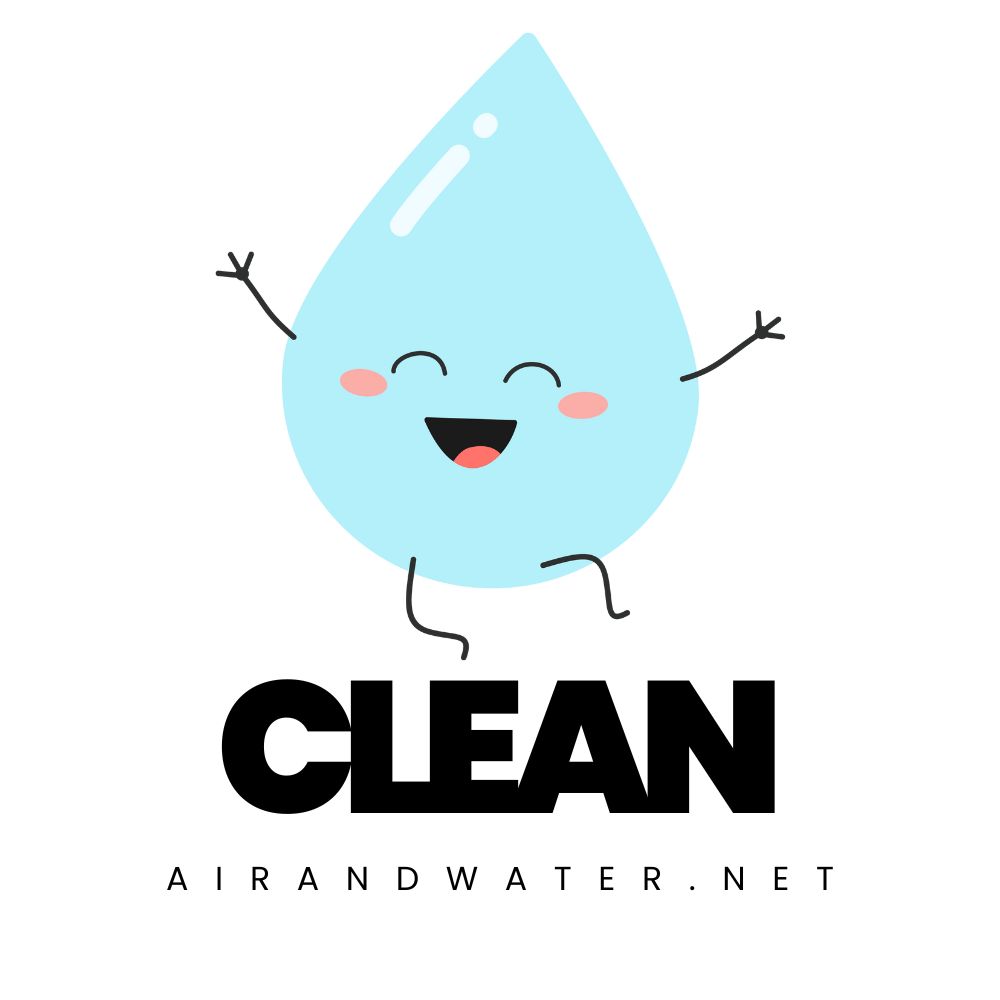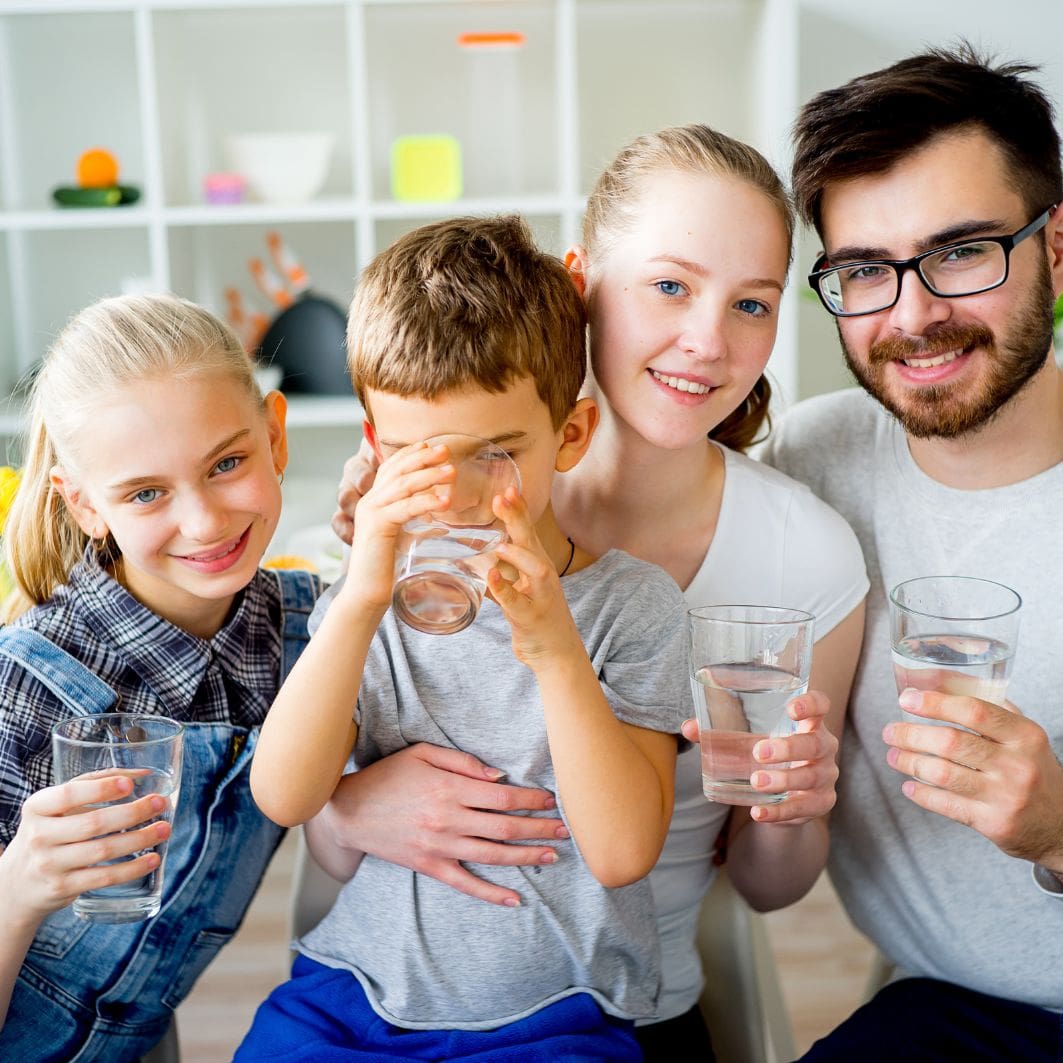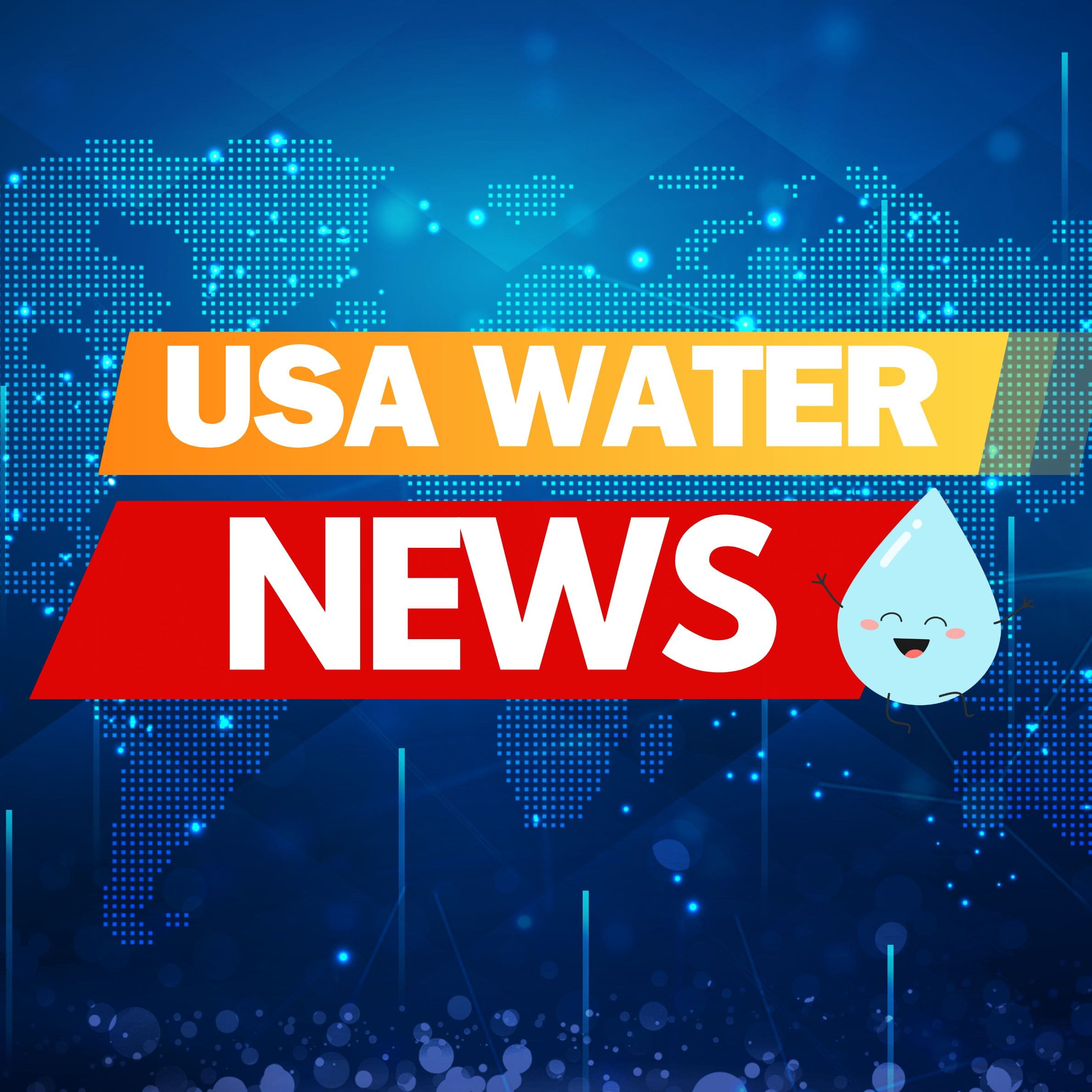Stockton Water Quality at a Glance
notable contamination
Is Stockton Water Safe to Drink?
Meets Federal Standards, But Contains Health Concerns – Stockton water meets EPA compliance standards but contains multiple contaminants of concern including arsenic averaging 4.2 ppb, chromium-6 at 790 ppt (40x California’s negligible cancer risk level), and detectable PFAS. The water comes from 27 active groundwater wells and purchased surface water, with natural geological arsenic contamination being a primary concern for the 319,000 residents served.
⚠️ Key Concerns for Stockton Residents
- Arsenic Contamination: Average levels of 4.2 ppb with peaks up to 6.4 ppb; naturally occurring from geological sources affecting all groundwater wells
- Chromium-6 Pollution: 790 parts per trillion detected – 40 times higher than California’s negligible cancer risk benchmark
- PFAS “Forever Chemicals”: Detectable levels of PFOS and other PFAS compounds in water supply affecting the entire service population
- Disinfection Byproducts: DBPs formed during water treatment linked to increased cancer risk and liver/kidney problems
Read the full report below for detailed analysis, city-specific data, and actionable recommendations for Stockton residents.
Stockton – California – Water Quality Report 2025: PFAS Testing, Infrastructure Concerns & Safety across your city
The City of Stockton Municipal Utilities Department (MUD) provides clean water to more than 50,000 residential and commercial connections in north and south Stockton, serving approximately 319,000 residents across the urban area. The city operates a hybrid water system that includes over 600 miles of water mains, multiple storage facilities, and treatment plants delivering water throughout the service area.
Stockton draws its drinking water from multiple sources: surface water diverted from the Sacramento San Joaquin Delta; surface water from the Mokelumne River purchased from Woodbridge Irrigation District; local groundwater from approximately 25 active wells owned and operated by the city; and treated water purchased from the Stockton East Water District (SEWD), imported from the New Melones (Stanislaus River) and New Hogan (Calaveras River) Reservoirs. Stockton’s water system faces challenges including Delta water quality variations, groundwater contamination from arsenic and agricultural sources, and the need to balance multiple water sources while maintaining compliance with federal and state drinking water standards.
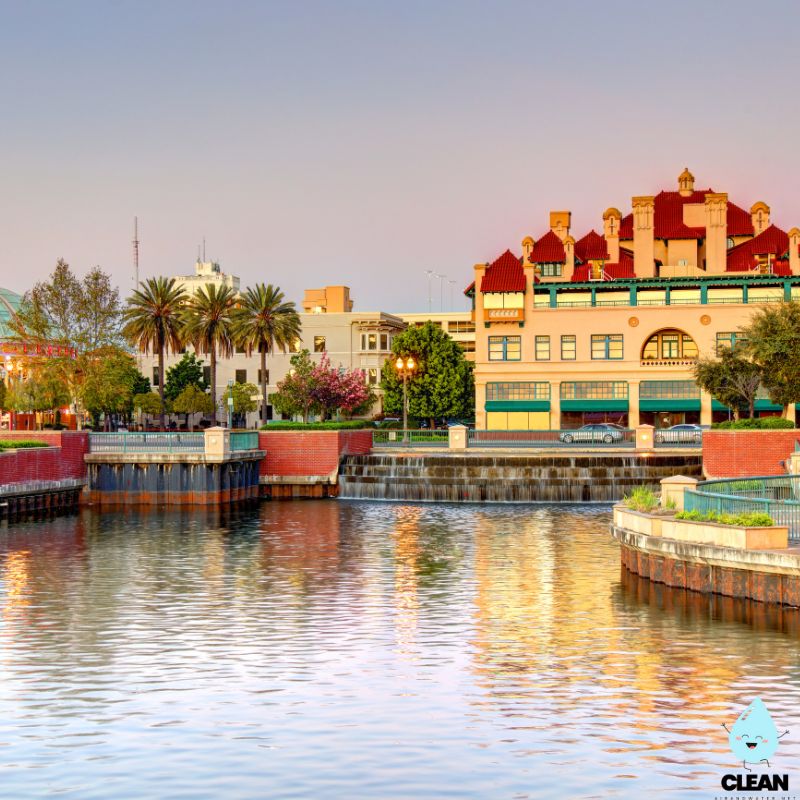
Stockton Water Quality: Current Status (2024-2025)
Latest Testing Results
- Lead Levels: The most recent testing period (January-December 2023) showed 90th percentile lead levels below the EPA action level of 15 ppb, reflecting the city’s effective corrosion control treatment and ongoing lead service line identification program.
- Arsenic Levels: Average arsenic concentration of 4.2 ppb with maximum levels reaching 6.4 ppb in the water system, primarily from natural geological sources in groundwater wells.
- Chromium-6: Detected at average levels of 790 parts per trillion, which is 40 times higher than California’s negligible cancer risk benchmark.
- PFAS Detection: Per- and polyfluoroalkyl substances (PFAS) have been detected in the water system, with ongoing monitoring as new federal regulations take effect.
- Compliance Status: Stockton’s water meets all federal and state drinking water standards, maintaining compliance with EPA and California State Water Resources Control Board Division of Drinking Water regulations as of April-June 2024.
Diverse Water Sources
- Surface Water Sources: Water diverted from the Sacramento San Joaquin Delta and surface water from the Mokelumne River purchased from Woodbridge Irrigation District.
- Purchased Water: Treated water purchased from the Stockton East Water District, originating from the New Melones (Stanislaus River) and New Hogan (Calaveras River) Reservoirs.
- Groundwater Wells: Local groundwater from approximately 25 active wells throughout the city, with 11 booster pumps and 6 storage tanks supporting the distribution system.
Advanced Treatment Technology
- Water Treatment Process: Multi-barrier treatment approach using coagulation, flocculation, sedimentation, filtration, and disinfection processes to address source water quality challenges.
- Disinfection Process: Chlorine-based disinfection system to effectively control pathogens while working to minimize disinfection byproducts formation.
- Corrosion Control: pH adjustment and corrosion inhibitors to prevent lead and copper leaching from plumbing materials, with ongoing optimization based on water quality parameters.
Infrastructure Investment
- System Improvements: Ongoing Capital Improvement Program focusing on water main replacements, storage facility upgrades, and treatment enhancements to maintain system reliability.
- Lead Service Line Inventory: California Senate Bill 1398 compliance program to identify and replace remaining lead service lines and galvanized pipes that may contain lead.
- Monitoring Technology: Regular water quality testing throughout the distribution system providing data on water quality parameters and contaminant detection.
Customer Support and Regional Collaboration
Stockton provides customer assistance including water conservation programs, leak detection services, and customer support. The city participates in regional groundwater management efforts and maintains compliance with state water quality regulations. Stockton’s approach balances reliable water delivery with water quality management and system improvements to serve this important Central Valley community of approximately 319,000 residents.
Recommendations for Stockton Residents
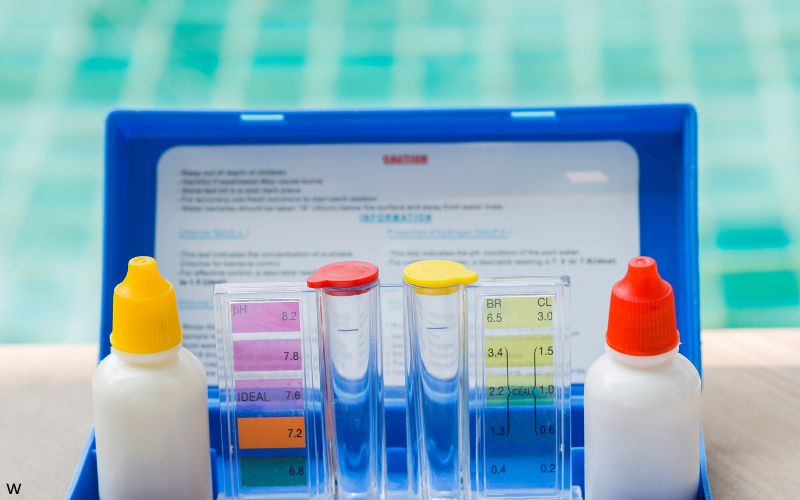
Request Water Testing
Contact Stockton Municipal Utilities Department at (209) 937-8700 or visit stocktonca.gov/water to request water quality testing, especially if your home was built before 1986 or if you notice changes in water taste, odor, or appearance.
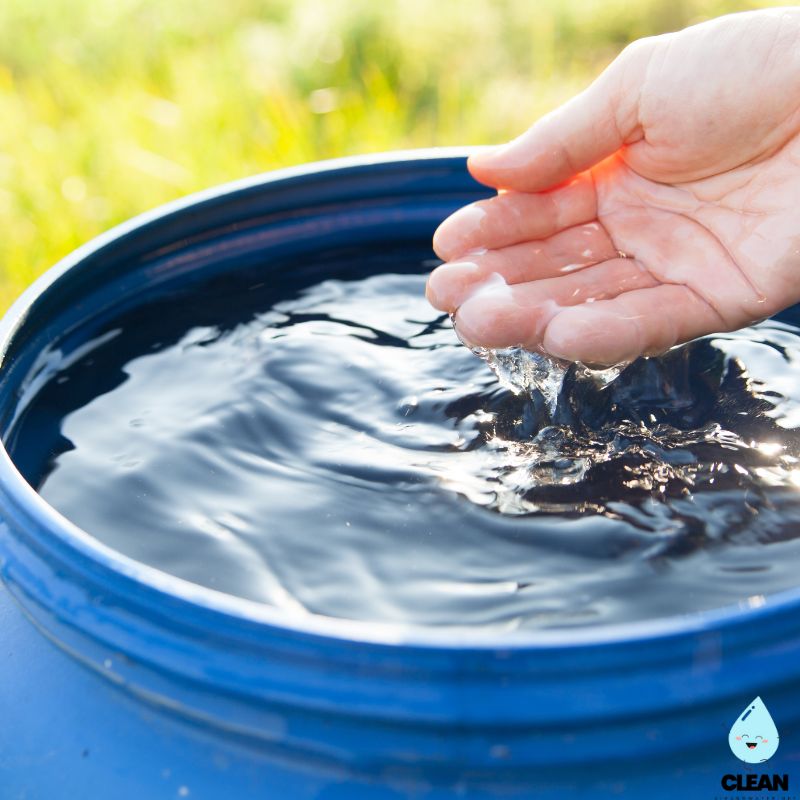
Conserve Water
Apply for rebates on high-efficiency fixtures, smart irrigation controllers, and turf replacement through the Water Conservation Office. Call (209) 937-5001 or visit stocktonca.gov/savewater to learn about water regulations and available programs.
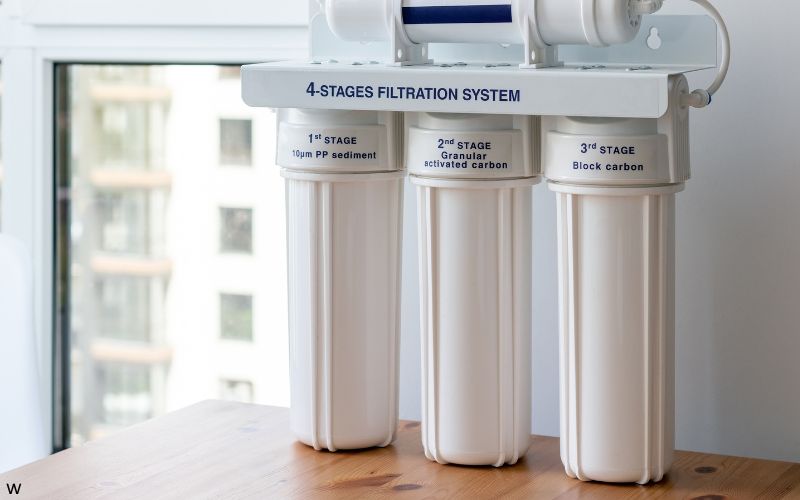
Consider Filtration
For homes with arsenic or chromium-6 concerns, consider using NSF-certified filters (Standard 53 for arsenic and lead, Standard 42 for taste/odor). Filter systems can effectively reduce contaminants like arsenic, chromium-6, and PFAS that are present in Stockton’s water supply.

Run Your Tap
If water has been sitting in pipes for 6+ hours, run cold water for 1-2 minutes before using for drinking or cooking. Always use cold water for consumption, as hot water can contain higher levels of metals from your household plumbing system.

Report Water Issues
Contact Stockton Municipal Utilities Department immediately at (209) 937-8341 for water main breaks, pressure problems, or quality concerns. For after-hours emergencies, call the 24-hour emergency line at (209) 937-8341. Use the Ask Stockton app to report non-emergency issues.
Quality News About Your Water
Get the comprehensive water quality news coverage you need with our dedicated US Water News Service. From coast to coast, we deliver in-depth reporting and expert analysis on PFAS contamination, EPA regulatory changes, infrastructure developments, and emerging water safety issues affecting communities nationwide. While mainstream media only covers the biggest stories, we provide the detailed, ongoing coverage that helps you understand the full scope of America’s water challenges. Whether you’re a concerned citizen, water professional, or community leader, our daily updates and analytical insights keep you informed about the issues that matter most to public health and environmental safety.
Frequently Asked Questions
Is Stockton’s tap water safe to drink?
Stockton’s tap water meets all federal and state drinking water standards and is in compliance with EPA regulations as of 2024. However, the water contains several contaminants of concern including arsenic averaging 4.2 ppb, chromium-6 at 790 ppt (40 times California’s negligible cancer risk level), and detectable PFAS compounds.
Recent testing shows lead levels below EPA action limits. The city uses a combination of surface water and groundwater sources, with natural arsenic contamination being a primary concern from geological sources. While the water meets legal standards, residents may want to consider filtration systems to reduce exposure to these contaminants.
Residents may notice seasonal taste and odor variations, particularly when Delta water conditions change, but these aesthetic issues do not indicate immediate health concerns.
Why does my water sometimes taste or smell different?
Seasonal variations in taste and odor are normal in Stockton due to several factors:
• Source water changes: The proportion of Delta water, purchased surface water, and groundwater in your supply can vary seasonally
• Delta conditions: Algae blooms in the Delta during warmer months can cause earthy or musty tastes that are reduced during treatment but may occasionally be noticeable
• Chlorine disinfection: The chlorine used to keep water safe throughout the distribution system can be more noticeable to some sensitive individuals
• Groundwater minerals: When groundwater use increases during peak demand periods, you may notice changes in mineral content and taste
These aesthetic variations do not indicate health concerns. Simple solutions include refrigerating water before drinking, using a carbon filter pitcher, or adding a slice of lemon. If you notice sudden or extreme changes in taste, odor, or appearance, please report them to the Utilities Department at (209) 937-8700.
What are the main water quality concerns in Stockton?
Stockton’s water quality concerns include several key contaminants that residents should be aware of:
• Arsenic: Naturally occurring from geological sources, averaging 4.2 ppb with peaks up to 6.4 ppb in groundwater wells
• Chromium-6: Present at 790 parts per trillion, which is 40 times higher than California’s negligible cancer risk benchmark
• PFAS: “Forever chemicals” detected in the water system, with ongoing monitoring as federal regulations are implemented
• Disinfection Byproducts: Form during chlorine treatment and are associated with potential health risks from long-term exposure
While the water meets federal compliance standards, these contaminants are present at levels that may warrant additional filtration for health-conscious residents, especially those with compromised immune systems, pregnant women, or families with young children.
How does Stockton address water conservation?
Stockton implements a comprehensive water conservation approach due to California’s drought vulnerability:
Year-Round Water Rules:
• Even-numbered addresses water on Tuesday, Thursday, and Saturday
• Odd-numbered addresses water on Wednesday, Friday, and Sunday
• No watering between 11 a.m. and 6 p.m. any day
• No watering within 48 hours after measurable rainfall
Conservation Programs:
• Rebates for high-efficiency toilets, washing machines, and smart irrigation controllers
• Cash-for-grass program offering rebates for turf removal
• Free water-wise house calls to help identify leaks and improve efficiency
• Water-wise landscaping workshops and demonstration gardens
During severe drought, additional restrictions may be implemented based on state mandates and local water supply conditions. Current water conservation stage and information are available at stocktonca.gov/savewater or by calling (209) 937-5001.
Water Quality Considerations

Arsenic and Heavy Metals
Source: Naturally occurring arsenic from geological formations in the Eastern San Joaquin Groundwater Basin, present in multiple groundwater wells throughout the system
Health Concerns: Arsenic is a known carcinogen linked to skin, lung, and bladder cancers, as well as cardiovascular disease with long-term exposure
Current Levels: Average arsenic concentration of 4.2 ppb with maximum levels reaching 6.4 ppb; chromium-6 detected at 790 ppt (40 times California’s negligible cancer risk level)
Management: Blending of groundwater sources with surface water helps reduce overall arsenic concentrations, though levels remain detectable in the finished water supply

PFAS “Forever Chemicals”
Source: Per- and polyfluoroalkyl substances from industrial discharge, consumer products, and firefighting foam that have contaminated water sources throughout California
Health Concerns: PFAS are linked to cancer, liver damage, decreased fertility, increased risk of asthma and thyroid disease, and immune system effects
Current Status: PFAS compounds including PFOS have been detected in Stockton’s water system, with ongoing monitoring as new federal MCL standards of 4 ppt for PFOS and PFOA take effect
Regulatory Changes: EPA’s new PFAS regulations require public water systems to monitor, notify the public, and reduce PFAS levels if they exceed the new standards by 2027-2031
Please read – our information
The information presented on cleanairandwater.net is compiled from official water quality reports, trusted news sources, government websites, and public health resources. While we strive for accuracy and thoroughness in our presentations, we are not scientists, engineers, or qualified water quality professionals.
Our mission is to present water quality information in an accessible, real-world format that helps people understand what’s in their water and make informed decisions about their health and safety. We believe that complex environmental information should be available to everyone in a format that’s easy to understand.
We make every effort to ensure our content is current and accurate, but we cannot guarantee that all information is complete or error-free. This website should not replace official communications from your local water utility or health department. We always recommend consulting official sources for the most up-to-date information regarding your specific water system.
Clean Air and Water is not liable for any unintentional errors, omissions, or outdated information. The content on this site is provided for informational purposes only and should not be considered professional advice.
